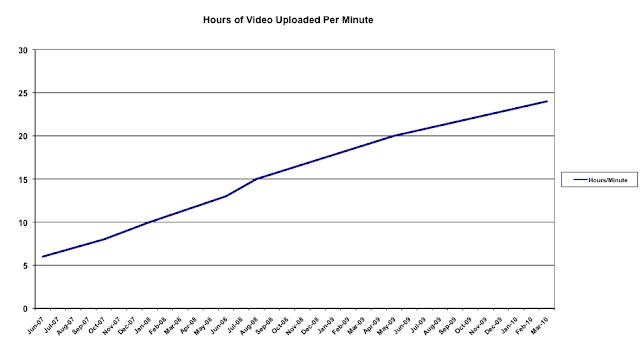Around the globe, YouTube has become a metaphor for the democratizing power of the Internet and information. YouTube gives unknown performers, filmmakers, and artists new ways to promote their work to a global audience and rise to worldwide fame; makes it possible for political candidates and elected officials to interact with the public in new ways; enables first-hand reporting from war zones and from inside repressive regimes; and lets students of all ages and backgrounds audit classes at leading universities.
Yet YouTube and sites like it will cease to exist in their current form if Viacom and others have their way in their lawsuits against YouTube.
In their opening briefs in the Viacom vs. YouTube lawsuit (which have been
made public today), Viacom and plaintiffs claim that YouTube doesn't do enough to keep their copyrighted material off the site. We ask the judge to rule that the safe harbors in the
Digital Millennium Copyright Act (the "DMCA") protect YouTube from the plaintiffs' claims. Congress enacted the DMCA to benefit the public by permitting open platforms like YouTube to flourish on the Web. It gives online services protection from copyright liability if they remove unauthorized content once they’re on notice of its existence on the site.
With some minor exceptions, all videos are automatically copyrighted from the moment they are created, regardless of who creates them. This means all videos on YouTube are copyrighted -- from "
Charlie Bit My Finger" to the video of your cat playing the piano and the video you took at your cousin’s wedding. The issue in this lawsuit is not whether a video is copyrighted, but whether it's authorized to be on the site. The DMCA (and common sense) recognizes that content owners, not service providers like YouTube, are in the best position to know whether a specific video is authorized to be on an Internet hosting service.
Because content owners large and small use YouTube in so many different ways, determining a particular copyright holder’s preference or a particular uploader’s authority over a given video on YouTube is difficult at best. And in this case, it was made even harder by Viacom’s own practices.
For years, Viacom continuously and secretly uploaded its content to YouTube, even while publicly complaining about its presence there. It hired no fewer than 18 different marketing agencies to upload its content to the site. It deliberately "roughed up" the videos to make them look stolen or leaked. It opened YouTube accounts using phony email addresses. It even sent employees to Kinko's to upload clips from computers that couldn't be traced to Viacom. And in an effort to promote its own shows, as a matter of company policy Viacom routinely left up clips from shows that had been uploaded to YouTube by ordinary users. Executives as high up as the president of Comedy Central and the head of MTV Networks felt "very strongly" that clips from shows like The Daily Show and The Colbert Report should remain on YouTube.
Viacom's efforts to disguise its promotional use of YouTube worked so well that even its own employees could not keep track of everything it was posting or leaving up on the site. As a result, on countless occasions Viacom demanded the removal of clips that it had uploaded to YouTube, only to return later to sheepishly ask for their reinstatement. In fact, some of the very clips that Viacom is suing us over were actually uploaded by Viacom itself.
Given Viacom’s own actions, there is no way YouTube could ever have known which Viacom content was and was not authorized to be on the site. But Viacom thinks YouTube should somehow have figured it out. The legal rule that Viacom seeks would require YouTube -- and every Web platform -- to investigate and police all content users upload, and would subject those web sites to crushing liability if they get it wrong.
Viacom’s brief misconstrues isolated lines from a handful of emails produced in this case to try to show that YouTube was founded with bad intentions, and asks the judge to believe that, even though Viacom tried repeatedly to buy YouTube, YouTube is like Napster or Grokster.
Nothing could be further from the truth. YouTube has long been a leader in providing media companies with 21st century tools to control, distribute, and make money from their content online. Working in cooperation with rights holders, our Content ID system scans over 100 years worth of video every day and lets rights holders choose whether to block, leave up, or monetize those videos. Over 1,000 media companies are now using Content ID -- including every major U.S. network broadcaster, movie studio, and record label -- and the majority of those companies choose to make money from user uploaded clips rather than block them. This is a true win-win that reflects our long-standing commitment to working with rights holders to give them the choices they want, while advancing YouTube as a platform for creativity.
We look forward to defending YouTube, and upholding the balance that Congress struck in the DMCA to protect the rights of copyright holders, the progress of technological innovation, and the public interest in free expression.
Update: The site containing the declarations and supporting exhibits filed by YouTube in support of its motion for summary judgment is
here.
Zahavah Levine, Chief Counsel, YouTube









